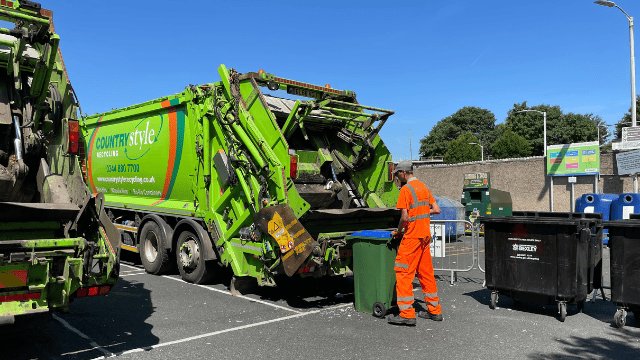Introduction:
In order to optimize the recycling potential of different materials, Dry Mixed Recycling Collection is a crucial waste management service. DMR makes recycling simpler for people and companies by allowing numerous recyclable products to be collected together, which makes it simpler to remove waste from landfills. This article examines the idea of DMR collecting and its advantages in encouraging environmentally friendly trash disposal methods.
Emphasis on Dry Mixed Recycling Collection:
DMR collecting has a few benefits that help create a more
Simpleness and Convenience:
By enabling a variety of recyclable materials to be combined in a single recycling bin, DMR collection makes recycling easier for both people and companies. This makes recycling easier for everyone because it eliminates the need for separate sorting and saves time and energy.
Increased Recycling Rates
DMR collection increases recycling rates by taking a wide range of recyclables. Eliminating the need to segregate goods into different bins encourages individuals to recycle more. This all-inclusive strategy encourages more engagement in recycling initiatives and opens recycling to a wider range of people.
Resource Protection:
DMR collecting aids in the preservation of priceless materials. There is less demand for virgin resources because materials like paper, cardboard, plastic, glass, and metals may be recycled and used to make new items. DMR contributes to the conservation of energy and raw resources needed for manufacturing processes by keeping these products out of landfills.
Advantages of Dry Mixed Recycling Collection:
Environmental Impact
By reducing the amount of waste delivered to landfills, DMR collection minimizes environmental pollution and greenhouse gas emissions caused by landfill decomposition. DMR promotes a better environment and the ideals of a circular economy by diverting waste products into recycling streams.
Cost-effectiveness:
DMR collection benefits waste management systems by lowering costs. It optimizes resource allocation and lowers collection and processing expenses by streamlining the collection process and lowering the number of bins needed. Municipalities and waste management service providers both profit from efficient resource utilization.
Educational Possibilities:
DMR collection produces educational opportunities to enhance knowledge and comprehension of recycling procedures. To increase awareness of the value of recycling and effective trash management, communities, businesses, and schools can launch educational programs. Participating in DMR efforts gives people a sense of responsibility and promotes long-term sustainable behavior. Check out Waste Management Kent.
Conclusion:
The collection of Dry Mixed Recycling (DMR) is crucial for advancing environmentally friendly waste disposal methods. DMR aids in financial effectiveness and environmental protection by streamlining the recycling process, raising recycling rates, and saving precious resources. Additionally, it offers educational opportunities to promote recycling and instill ethical waste management practices. A step towards a more sustainable future and the promotion of a circular economy, where resources are conserved, trash is minimized, and environmental effect is diminished, is the incorporation of DMR collection into waste management systems.


